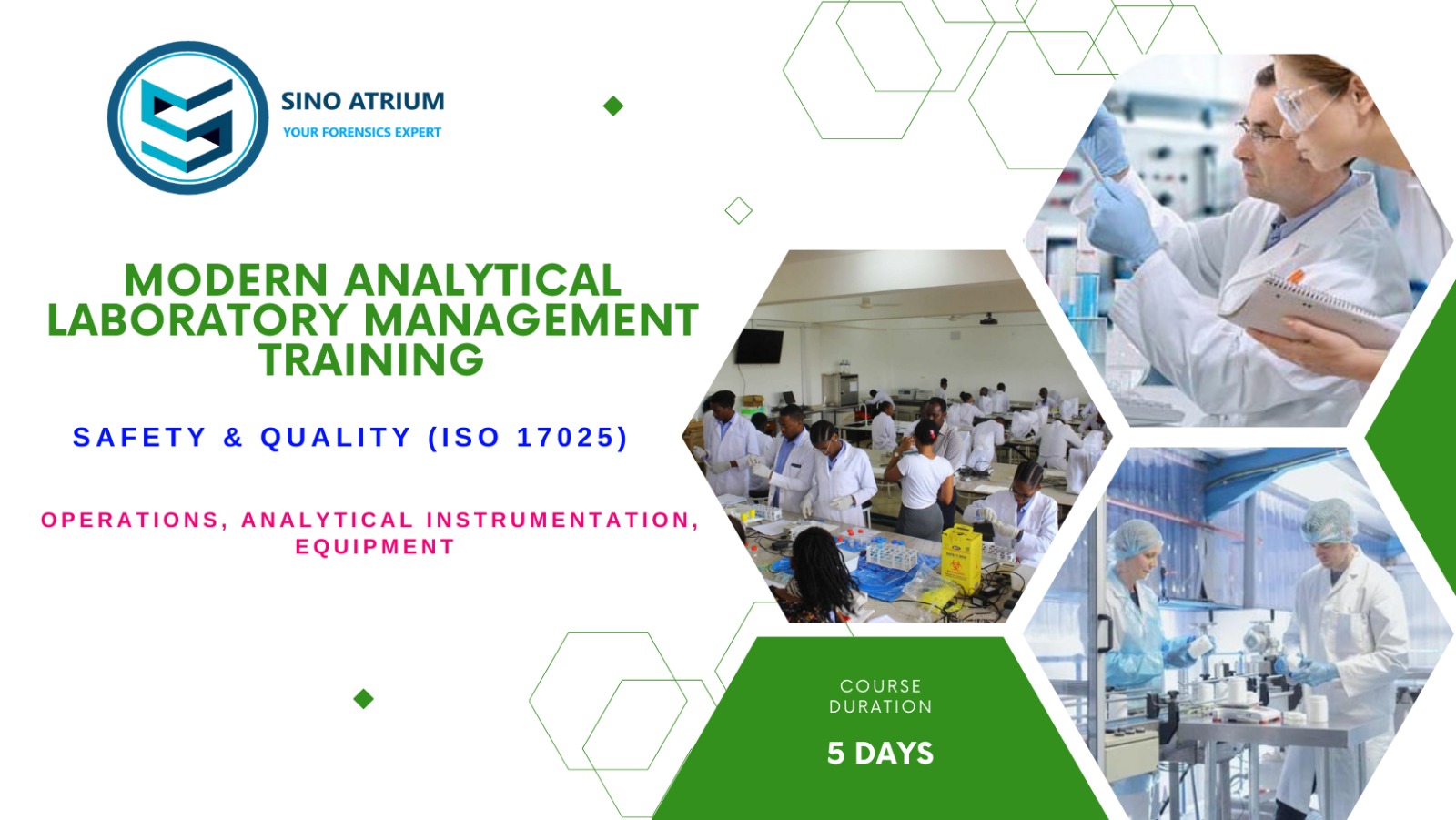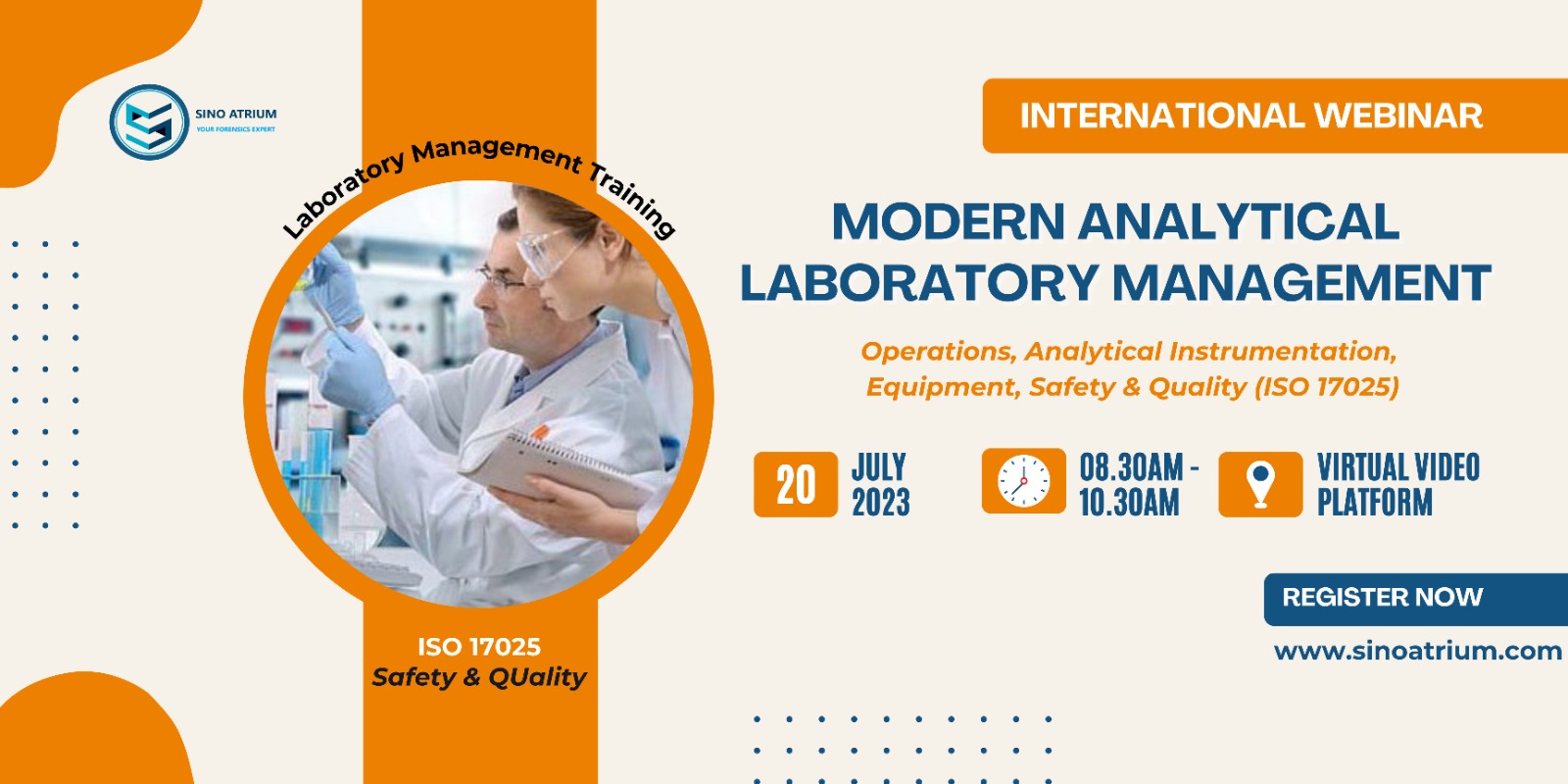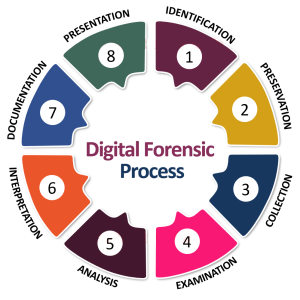Description
Course Duration: 5 Days
Programme Overview:
The modern analytical laboratory management program is designed to provide participants with the knowledge, skills, and tools necessary to effectively manage and operate a laboratory in today’s analytical industry. The program encompasses various key areas, including quality management, regulatory compliance, safety protocols, data analysis, and leadership development. It aims to equip participants with the competencies required to ensure accurate and reliable analytical results, maintain regulatory compliance, optimize resource utilization, and foster a culture of continuous improvement.
A modern analytical laboratory management course typically focuses on equipping participants with the skills and knowledge required to effectively manage and operate a laboratory in various industries such as pharmaceuticals, biotechnology, environmental science, food safety, and more. The course covers a range of topics related to laboratory operations, quality management, regulatory compliance, and data analysis. Here are some key areas that might be covered in such a course:
Laboratory Management Principles: This module introduces the fundamental principles of laboratory management, including organizational structure, personnel management, budgeting, resource allocation, and strategic planning. Quality Assurance and Quality Control: This section covers the implementation of quality systems, such as ISO 17025, GLP (Good Laboratory Practices), and GMP (Good Manufacturing Practices). It includes topics like standard operating procedures (SOPs), instrument calibration and maintenance, proficiency testing, method validation, and documentation.
Laboratory Safety: Safety is of paramount importance in any laboratory setting. This module covers risk assessment, hazard identification, safety protocols, chemical hygiene, personal protective equipment (PPE), emergency response planning, and waste management.
Regulatory Compliance: Participants learn about the relevant regulations and standards applicable to their industry, such as FDA (Food and Drug Administration) regulations, EPA (Environmental Protection Agency) guidelines, or international standards. Topics may include compliance audits, data integrity, and preparing for inspections.
Instrumentation and Analytical Techniques: This module focuses on various analytical techniques used in modern laboratories, including spectroscopy, chromatography, mass spectrometry, microscopy, and molecular biology techniques. Participants learn about instrument selection, troubleshooting, and data interpretation.
Data Management and Analysis: Effective management and analysis of laboratory data are crucial for decision-making and maintaining data integrity. This section covers data management systems, data validation, statistical analysis, data visualization, and reporting.
Laboratory Information Management Systems (LIMS): LIMS are software systems used to manage laboratory operations and data. Participants learn about LIMS functionality, implementation considerations, data security, and integration with other laboratory systems.
Project Management: Laboratory managers often oversee multiple projects simultaneously. This module covers project planning, scheduling, resource allocation, risk management, and effective communication.
Leadership and Communication: Effective leadership and communication skills are essential for managing laboratory personnel and fostering a positive work environment. This section covers team building, conflict resolution, performance management, and effective communication strategies.
Emerging Trends: The course may touch upon emerging trends and technologies in laboratory management, such as automation, robotics, artificial intelligence (AI), and data analytics.
It’s important to note that the specific content and duration of a modern analytical laboratory management course may vary depending on the institution or training provider offering the program.
Course Description:
Modern analytical laboratory management involves the effective and efficient operation and oversight of a laboratory in various industries, including pharmaceuticals, biotechnology, environmental science, food safety, and more. It encompasses a wide range of activities aimed at ensuring accurate and reliable analytical results, maintaining regulatory compliance, optimizing resource utilization, and promoting a culture of continuous improvement.
In a modern analytical laboratory, advanced technologies and techniques are employed to analyze samples, generate data, and derive meaningful insights. Laboratory managers and supervisors are responsible for coordinating these activities, ensuring the laboratory operates smoothly, and meeting the needs of clients or internal stakeholders. One of the primary focuses of modern laboratory management is quality assurance and quality control. This involves implementing robust quality systems, adhering to relevant regulatory requirements, and conducting thorough validation and verification processes. It also includes establishing and following standard operating procedures (SOPs), maintaining proper instrument calibration and maintenance schedules, and participating in proficiency testing programs to ensure accurate and reliable results.
Laboratory safety is another critical aspect of modern laboratory management. Managers must ensure that all personnel are trained on safety protocols, including proper handling and disposal of hazardous materials, use of personal protective equipment (PPE), and emergency response procedures. Risk assessment and management strategies are implemented to minimize potential hazards and maintain a safe working environment. Data management and analysis play a significant role in laboratory management. Effective data management systems, such as Laboratory Information Management Systems (LIMS), are utilized to organize and store analytical data, track samples, and streamline workflow processes. Statistical analysis and data visualization techniques are employed to interpret results, identify trends, and make informed decisions. Laboratory managers are also responsible for resource management, including personnel allocation, budgeting, procurement of equipment and supplies, and optimizing laboratory workflows. They must have a thorough understanding of the laboratory’s capabilities and limitations, as well as the regulatory and business environment in which the laboratory operates.
Additionally, modern laboratory management involves staying updated with emerging trends and technologies in the field. This may include the adoption of automation and robotics to enhance efficiency, the integration of artificial intelligence (AI) algorithms for data analysis, and the implementation of advanced analytical techniques. Strong leadership and communication skills are essential for laboratory managers to effectively manage and motivate their teams. They must foster a collaborative work environment, provide clear direction, and encourage professional development.
In summary, modern analytical laboratory management encompasses various aspects, including quality assurance, safety, data management, resource optimization, and leadership. It requires a combination of technical expertise, regulatory knowledge, managerial skills, and a commitment to continuous improvement to ensure the laboratory operates efficiently, produces accurate results, and meets the needs of its stakeholders.
Program Modules:
1. Introduction to Analytical Laboratory Management:
• Overview of laboratory management principles and practices
• Role of laboratory managers and supervisors
• Current trends and challenges in the analytical industry
2. Quality Management in the Laboratory:
• Introduction to quality assurance and quality control concepts
• Implementation of quality systems (e.g., ISO 17025, GLP, GMP)
• Development and documentation of standard operating procedures (SOPs)
• Method validation and verification processes
• Instrument calibration and maintenance strategies
3. Regulatory Compliance and Accreditation:
• Understanding relevant regulatory requirements and guidelines
• Compliance audits and inspections
• Data integrity and documentation practices
• Preparation for accreditation processes (e.g., ISO 17025)
4. Laboratory Safety and Risk Management:
• Hazard identification and risk assessment
• Chemical hygiene and safety protocols
• Personal protective equipment (PPE) usage
• Emergency response planning and procedures
• Waste management and disposal practices
5. Data Management and Analysis:
• Introduction to laboratory information management systems (LIMS)
• Data organization, storage, and retrieval
• Data validation and quality control techniques
• Statistical analysis and data visualization methods
• Report generation and data integrity assurance
6. Resource Optimization and Management:
• Personnel management and team development strategies
• Budgeting and resource allocation techniques
• Inventory management and procurement best practices
• Workflow optimization and process improvement methodologies
7. Project Management in the Laboratory:
• Project planning, scheduling, and execution
• Risk assessment and management
• Effective communication and collaboration within the laboratory
• Performance measurement and evaluation
8. Leadership and Communication Skills:
• Developing effective leadership styles and strategies
• Team building and motivation techniques
• Conflict resolution and problem-solving skills
• Effective communication within the laboratory and with stakeholders
9. Emerging Technologies in Analytical Laboratory Management:
• Automation and robotics in laboratory operations
• Integration of artificial intelligence (AI) and machine learning
• Data analytics and big data applications in decision-making
• Keeping up with emerging trends and advancements in the industry
Program Delivery:
The program is typically delivered through a combination of lectures, interactive workshops, case studies, group discussions, and hands-on exercises. It may also include site visits to operational laboratories or guest lectures from industry experts to provide practical insights and real-world applications.
Target Audience:
The modern analytical laboratory management program is suitable for laboratory managers, supervisors, quality assurance professionals, research and development scientists, and professionals involved in laboratory operations in industries such as pharmaceuticals, biotechnology, environmental science, food safety, and more.
Program Benefits:
Upon completion of the program, participants can expect to:
• Understand the principles of effective laboratory management
• Implement quality management systems and ensure regulatory compliance
• Foster a culture of safety in the laboratory environment
• Manage and analyze laboratory data efficiently and accurately
• Optimize resource utilization and improve operational efficiency
• Develop leadership and communication skills for effective team management
• Stay updated with emerging
Technologies and trends in laboratory management
Course Objectives:
Understand the principles of laboratory management: Gain a comprehensive understanding of the fundamental principles of laboratory management, including organizational structure, personnel management, budgeting, resource allocation, and strategic planning.
Develop knowledge of quality assurance and quality control: Learn how to implement and maintain quality systems such as ISO 17025, GLP, and GMP. Understand the importance of standard operating procedures (SOPs), instrument calibration and maintenance, method validation, and documentation to ensure accurate and reliable analytical results.
Acquire laboratory safety knowledge: Familiarize yourself with laboratory safety protocols, risk assessment, hazard identification, chemical hygiene, personal protective equipment (PPE), emergency response planning, and waste management to maintain a safe working environment.
Understand regulatory compliance: Gain knowledge of relevant regulations and standards in your industry, such as FDA regulations, EPA guidelines, or international standards. Learn how to comply with these regulations, prepare for inspections, and maintain data integrity and documentation.
Familiarize yourself with instrumentation and analytical techniques: Learn about a variety of analytical techniques used in modern laboratories, including spectroscopy, chromatography, mass spectrometry, microscopy, and molecular biology techniques. Understand instrument selection, troubleshooting, and data interpretation for effective analysis.
Develop skills in data management and analysis: Learn how to effectively manage laboratory data, including data validation, statistical analysis, data visualization, and reporting. Understand the importance of data integrity, accuracy, and security in decision-making processes.
Gain knowledge of Laboratory Information Management Systems (LIMS): Familiarize yourself with LIMS functionality, implementation considerations, and data integration with other laboratory systems. Understand how LIMS can improve laboratory operations and data management.
Develop project management skills: Acquire project management skills necessary for overseeing multiple projects in a laboratory setting. Learn about project planning, scheduling, resource allocation, risk management, and effective communication to ensure successful project execution.
Enhance leadership and communication skills: Develop effective leadership skills for managing laboratory personnel, fostering teamwork, and resolving conflicts. Improve communication strategies to facilitate effective information exchange and collaboration within the laboratory.
Stay updated on emerging trends: Gain awareness of emerging trends and technologies in laboratory management, such as automation, robotics, artificial intelligence (AI), and data analytics. Understand their potential applications and impacts on laboratory operations.
These course objectives aim to equip participants with the knowledge, skills, and tools required to manage and operate a modern analytical laboratory effectively, ensuring high-quality results, regulatory compliance, and efficient resource utilization.




Reviews
There are no reviews yet.